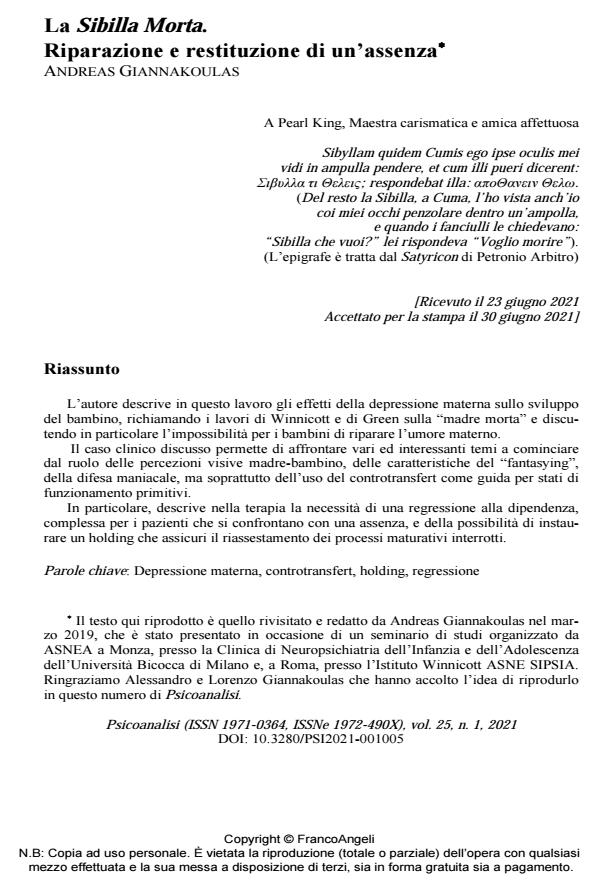The Sibilla Morta. Repair and Return of an Absence
Journal title PSICOANALISI
Author/s Andreas Giannakoulas
Publishing Year 2021 Issue 2021/1
Language Italian Pages 19 P. 67-85 File size 214 KB
DOI 10.3280/PSI2021-001005
DOI is like a bar code for intellectual property: to have more infomation
click here
Below, you can see the article first page
If you want to buy this article in PDF format, you can do it, following the instructions to buy download credits

FrancoAngeli is member of Publishers International Linking Association, Inc (PILA), a not-for-profit association which run the CrossRef service enabling links to and from online scholarly content.
The Author describes the effects of maternal depression on the development of the child, recalling the writings of Winnicott and Green on the "dead mother" and discussing in particular the impossibility for children to repair the maternal mood. The clinical case discussed allows us to address various and interesting themes, starting with the role of mother-child visual perceptions, the characteristics of "fantasying", the ma-nic defense, but above all the use of countertransference as a guide for primitive states of functioning. In particular, he describes (in the therapeutic relationship) the patient’s need for a re-gression to dependence, which is complex for patients who are confronted with an absence, and the possibility of establishing a holding that ensures the resettlement of the interrupted maturation processes.
Keywords: Maternal depression, controtransference, holding, regression
Andreas Giannakoulas, La Sibilla Morta. Riparazione e restituzione di un’assenza in "PSICOANALISI" 1/2021, pp 67-85, DOI: 10.3280/PSI2021-001005